Will Worship for Likes
To build their celeb-approved megachurch, Churchome, pastors Judah and Chelsea Smith preach community, love, acceptance, and inclusion. Is their Instagrammable message truly reframing Christianity or simply helping their church rake in millions?
In 1999, a young single mom named Pattie Mallette attended a Christian conference in Toronto, about 90 miles from her hometown in Canada. From the audience, she watched Judah Smith, then the co-leader of the youth ministry at the City Church, speak about the Bible and Jesus. He seemed cool and young, and she liked what he was preaching. She left the summit with a few recordings of his sermons. By the time she reached out to Judah and his wife, Chelsea Smith, with an invitation to attend one of her son’s concerts at the Everett arena in Washington, the Smiths had become co-lead pastors at the City Church in nearby Seattle. “I don’t know if you’ve heard of my son,” Chelsea remembers Mallette saying, “but he needs some good influences in his life. Would you come?” It was 2010. Of course the Smiths had heard of her son. Justin Bieber, then 16, was the most Googled person in the U.S. that year.
Nearly a decade later, the Smiths’ nondenominational church—which has since been rebranded as Churchome—has become one of the most influential Christian congregations in Hollywood. According to the Smiths, their church collectively draws more than 10,000 people every week to its five locations in Washington State and California, including its Wednesday-evening service at the historic Saban Theatre in Beverly Hills, where it’s not uncommon to find the front rows reserved for celebrities and the back doors staked out by paparazzi. The L.A. services have drawn the likes of Kourtney Kardashian, Ciara and Russell Wilson, and Selena Gomez.
The Smiths introduced Bieber to Carl and Laura Lentz, who lead the New York outpost of Australian megachurch Hillsong, which many of the Smiths’ congregants (including Bieber and his wife, Hailey Baldwin Bieber) attend when they’re on the East Coast. Chad Veach, another friend of the Smiths, leads L.A.’s Zoe Church, which counts Chris Pratt, Katherine Schwarzenegger, and Ashley Benson among its followers.
As church attendance in the U.S. declines and the number of Americans with no religious affiliation rises (a recent Gallup poll found that half of all adults belonged to a house of worship in 2018, compared to an average of 68 percent throughout the 1970s, ’80s, and ’90s), the Smiths want to reposition Christianity through positive storytelling—not through the messages of doom and gloom that other churches have preached in the past. “In those dark times, the story got out there that Christians were a bit mean and harsh and judgmental and looking for the wrong in people,” says Chelsea Smith. Fearmongering televangelists like Jim Bakker and Robert Tilton sermonized that those who didn’t follow Jesus—and those who didn’t donate heavily to the church—would face demons and end times. (Bakker was later indicted on multiple counts of fraud. Tilton, who was repeatedly accused of unethical fundraising, was unsuccessfully sued for fraud.)
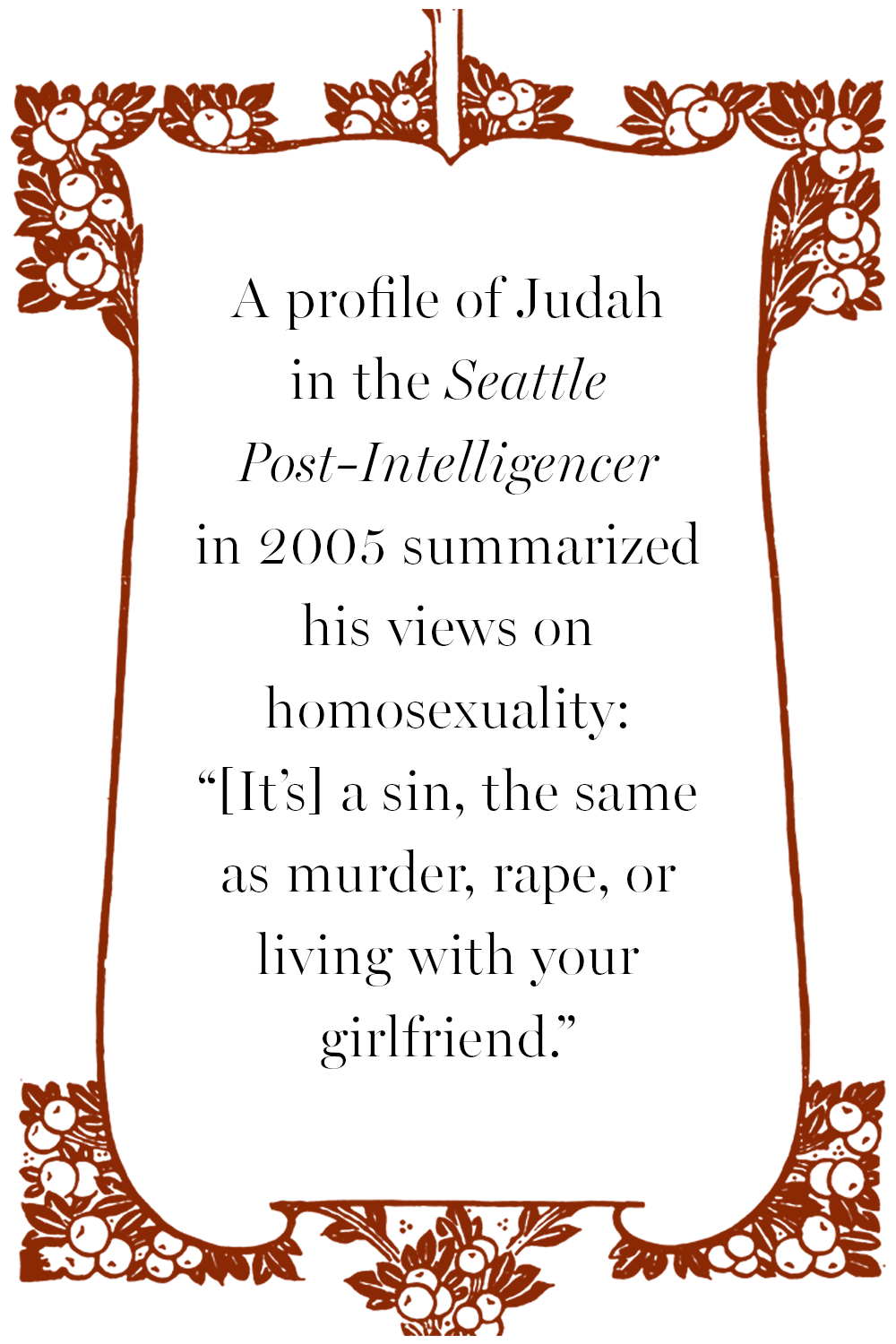
Not that these megachurch scandals are unique to the 1980s. Last year, high-profile pastors Bill Hybels in South Barrington, Illinois; Dean Curry in Tacoma, Washington; Les Hughey in Scottsdale, Arizona; and Andy Savage in Memphis were among a number of Christian leaders reported to have been fired or forced to resign following allegations of sexual misconduct or abuse. And, historically, most Christian megachurches have deemed those who partake in same-sex relationships or have an abortion to be sinners. (A 2018 survey of America’s 100 largest churches by policy-tracking advocacy group Church Clarity found that 94 percent were not LGBTQ-affirming and 6 percent didn’t disclose their stance.)
But Churchome is different, says Chelsea. It’s nondenominational. Its pastors say they love and accept everyone. They like modern art (Judah is an abstract painter) and tattoos (he and Bieber got matching ink) and sex (after marriage, but they won’t judge if you disagree). That messaging has been key to their meteoric rise and may be far more inclusive than the truth.
Fellow celeb-loved church Hillsong has come under fire for barring its gay members from holding positions of leadership within the church. (Its Australian-based founder Brian Houston wrote in a 2015 blog post titled “Do I Love Gay People?” that “Hillsong Church welcomes ALL people but does not affirm all lifestyles. Put clearly, we do not affirm a gay lifestyle.”) On Instagram, Hillsong NYC’s Carl Lentz described New York’s Reproductive Health Act, passed in 2019 to legalize abortion at any point during pregnancy if necessary to protect the mother’s life or health, as “evil, shameful and demonic.” And actress Ellen Page called out Chris Pratt’s relationship with Zoe Church after he talked about his spirituality on The Late Show With Stephen Colbert in February, tweeting, “Oh. K. Um. But his church is infamously anti lgbtq so maybe address that too?” Churchome has thus far managed to avoid major public backlash, in part by skirting most issues that could be considered controversial.
Get exclusive access to fashion and beauty trends, hot-off-the-press celebrity news, and more.

Bieber and Smith on stage at Churchome in 2015.
Yet, in 2005, before he was Instafamous and buds with Bieber, Judah openly preached his unfiltered views. According to the Seattle Post-Intelligencer, which profiled Smith’s growing popularity that year, he said he targeted followers ages 12 to 19 to “get them young” and told one such group that “President Bush’s Supreme Court nominations would be essential to determining ‘whether or not we will continue to murder innocent lives in the womb of our women.’” The article also summarized his views on homosexuality: “[It’s] a sin, the same as murder, rape, or living with your girlfriend.”
Which begs a question: Is Churchome truly expanding what it means to be Christian, or are the Smiths sleek storytellers who know what it takes to stay popular with Gen Z and millennials?
On a Wednesday evening last February, the lobby of the Saban Theatre buzzed with teens, twenty-, and thirtysomethings wearing T-shirts and distressed denim. One guy with a fur collar on his jacket had a neck tattoo of praying hands. Former NFL player Reggie Bush and his wife, Lilit, slipped into reserved seats toward the front row of the nearly-2,000-capacity theater. The stage was illuminated in blue and purple lights, and a keyboard stood in place of an organ.
Judah, wearing an oversize burnt-orange button-down, black skinny jeans, and black leather boots, opened his sermon by calling himself a “Jesus guy” and launched into the Old Testament story of Rahab, a prostitute who found faith against the odds. He talked with the smooth croon of a late-night DJ, pacing the room while reciting a prayer, then tossing his arms in the air as if he were a rapper spitting a verse. “If your lifestyle in any way reflects or [has] some symmetry with Rahab, I could almost argue that God’s with you a lot,” he said. “God loves broken people.”
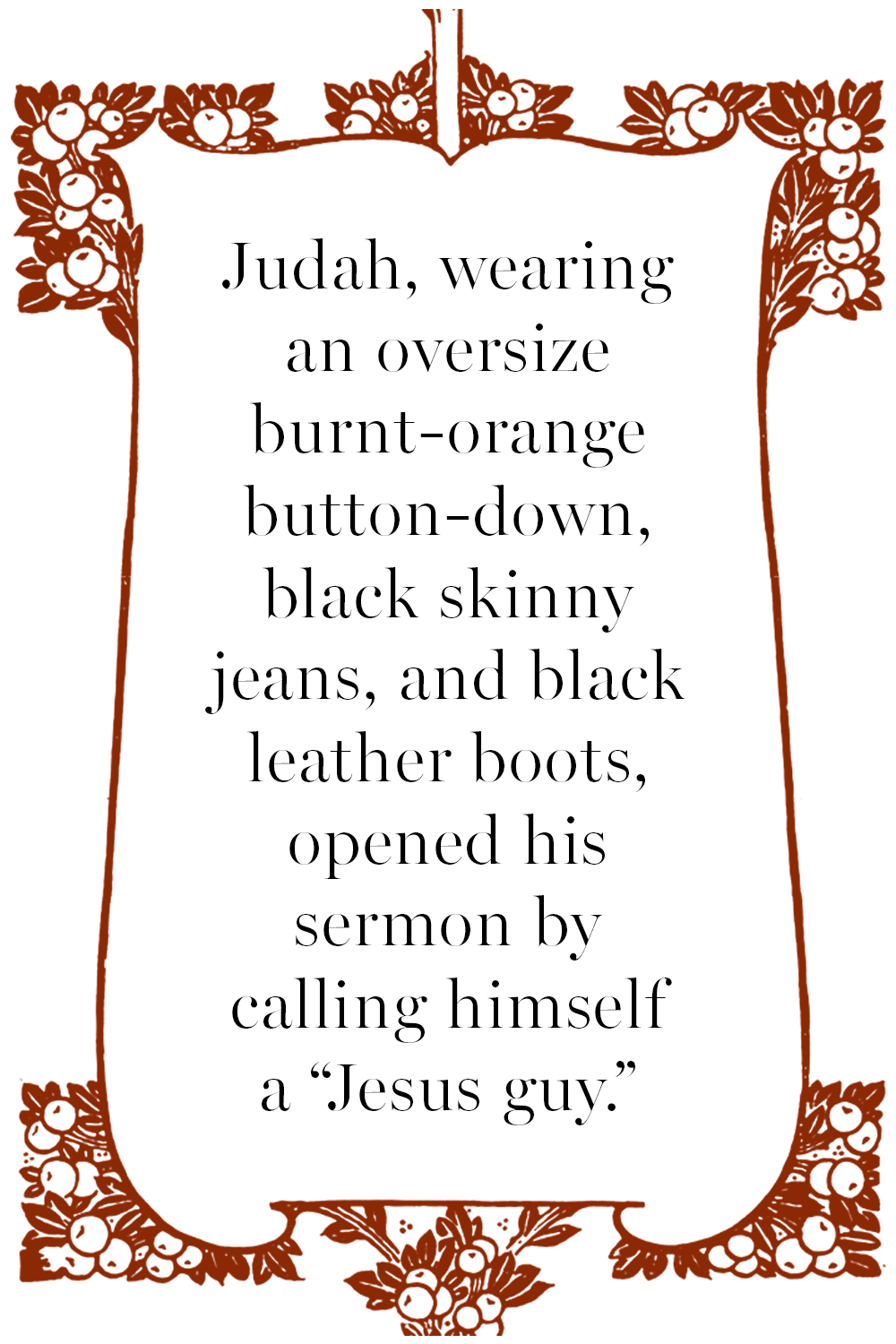
The following Wednesday night, a group of baptisms took place in a small inflatable pool in the lobby of the Saban. People crowded around the pool and spilled onto the stairs and the balcony above. Everyone was cheering, as if it were a sporting event. Many of those who got baptized had been going to Churchome for only a few months. One woman said God let her survive the mass shooting at the Route 91 Harvest music festival in Las Vegas. Another woman explained she was doing it to celebrate turning 60. As she got dunked in the water, the crowd sang “Happy Birthday.”
“Are we a religion? Sure. But it’s not about doing everything right so that you’re accepted by God or his community,” says Chelsea. “It’s like, you’re already in with God. All you have to do is receive the gift [of faith] that has been given.”
It’s a day before the aforementioned service, and she is at the kitchen table in her light-filled home, which is decorated with sleek modern furniture and sits at the end of a cul-de-sac high atop the Hollywood hills. Churchome, which operates as a 501c3 organization, purchased the 2,806-square-foot, four-bedroom home in 2016 for roughly $2.5 million as an investment in its future in Los Angeles. The church’s total revenue last year was about $20 million; $18.5 million of that came from “tithes,” traditionally a tenth of congregants’ incomes and offerings. (They are not required to donate.) Because Churchome is a nonprofit, it’s exempt from federal income tax.
The Smiths moved into the home full-time in the summer of 2018 after enrolling their kids in public school in Los Angeles. It serves as a weekday residence for Chelsea and Judah, both 41, and their three blond-haired kids: Zion, 15, who looks like a young Bieber, with a buzz cut and pierced ears; Eliott, 13, a streetwear connoisseur with an affinity for rapper Travis Scott; and Grace, 10, who likes playing with purple slime and is obsessed with nail-art videos on YouTube. The family often flies back to Seattle for Churchome’s Sunday service.
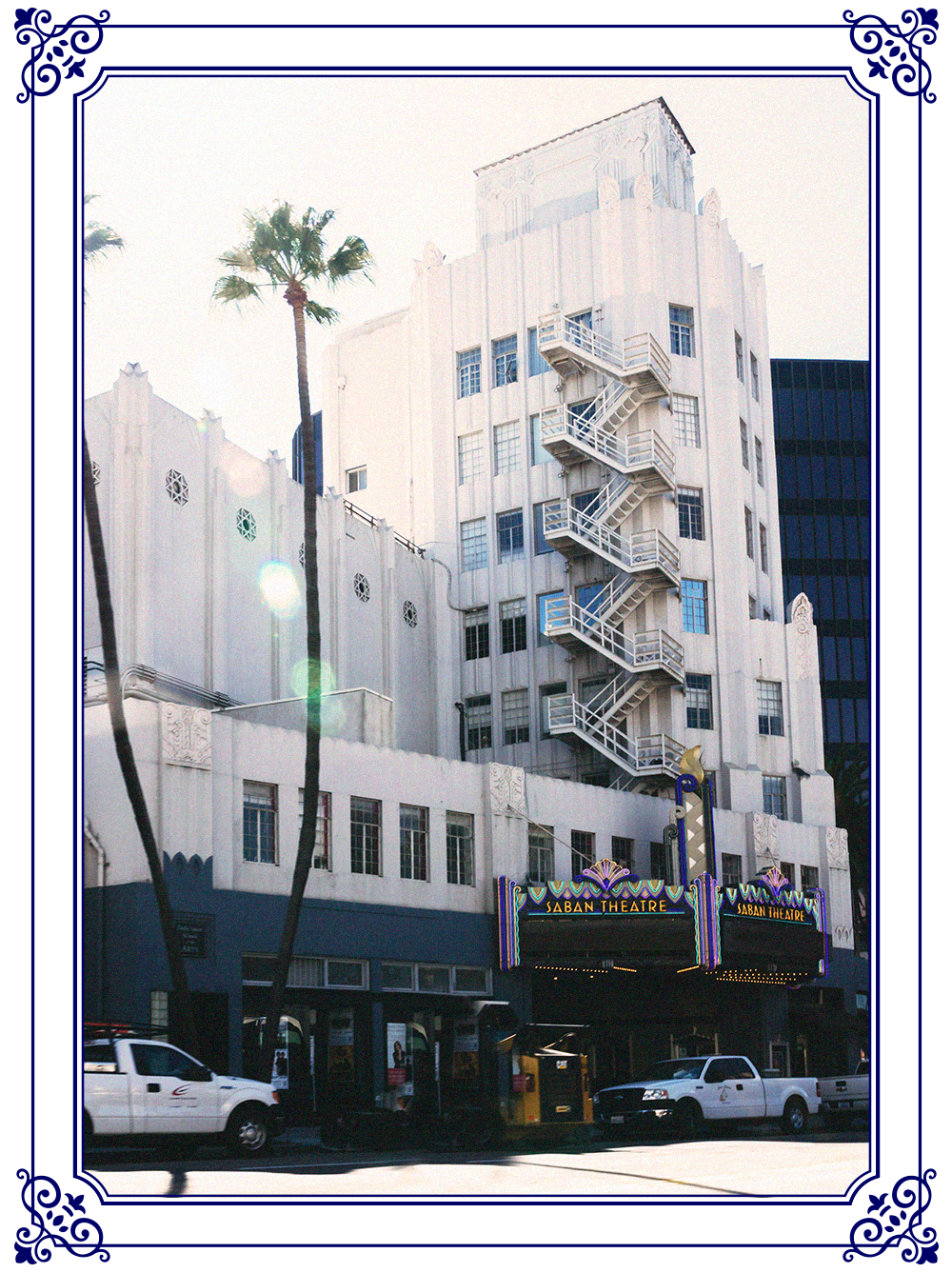
Churchome holds service at Saban Theatre in Beverly Hills.
Baptisms for friends of the church are occasionally held in the backyard swimming pool of the L.A. house. The living room, with its powder-blue velvet couch, black leather Eames chair, and neon sign spelling Judah’s and Chelsea’s names in cursive, looks ripped from Pinterest. On the walls are bold abstract paintings by Judah (Chelsea jokes that one with messy red painted letters looks like a ransom note; Judah recently sold a similar painting on his website, paintbyjudah.com, for $1,900), and there are coffee-table books on subjects ranging from French impressionists to muscle cars. (As of October, Churchome began renting office space at Saban Theatre and sold the home for nearly $3 million; the Smiths are still spending time between L.A. and Seattle.)
Like the Smiths’ home, Churchome’s Instagram feed is meticulously curated, thanks to Churchome’s creative-content team, which includes a full-time social-media manager and a content director. Still, Churchome’s media universe is modest compared to that of Hillsong, which boasts a smartphone app, a TV channel, and a record label.
But the Smiths are not far behind. Last November, Churchome debuted an app, Churchome Global, that encourages users to stream sermons, join community chat rooms, and digitally pray for one another. The app’s prayer feature looks like a newsfeed. Users post their prayers instead of status updates and receive notifications when others have “prayed” for them.
With more than 610,000 Instagram followers, Judah Smith has amassed a legion of loyal disciples.
Churchome Global, which is run by app-development company Seventh Spark, also allows users, a majority of whom are single, to direct message one another, which means it sometimes functions like a dating app. Using Pushpay, a donor-management system designed for churches, the app also makes it easy to set up one-time or recurring donations to any of the church’s five campuses. (According to Churchome’s annual report, Judah and Chelsea are personally compensated in exchange for providing consulting services to Seventh Spark. The couple donate 20 percent of their overall income to the church, though they did not disclose the total amount.)
In addition to the app, which has been downloaded more than 200,000 times, according to Seventh Spark, the Smiths are focused on growing their L.A. base via more in-person experiences. One example: 2018’s pop-up sermon at Coachella, led by Judah and featuring a surprise performance of worship songs by Bieber. Another is She, a Churchome group for women, because, as Chelsea says, “You don’t realize at times how much of the religious conversation is dominated by men.” She adds, “Our God-given femininity, however it’s expressed in each individual woman, is so beautiful.” Currently, there are hundreds of She members who connect via the app. The group partners with Churchome’s Uplift division, which organizes volunteer events and campaigns to give back to local communities—they recently hosted a diaper and clothing drive for teen moms—and has its own messaging space on Churchome Global. Chelsea leads its communications.
The seeds for Churchome were planted long before Chelsea and Judah were born. Judah is a seventh-generation pastor. Chelsea’s family adopted Christianity much later. Her parents turned to Jesus when her father was 19, after his brother committed suicide. “He felt darkness and didn’t know what to do,” she says. His ex-girlfriend was Christian, so he drove to her parents’ house and asked them to pray for him. Then he invited over his current girlfriend—Chelsea’s mom—and asked them to pray for her too. Chelsea’s parents got married a year later and made church a permanent part of their lives.
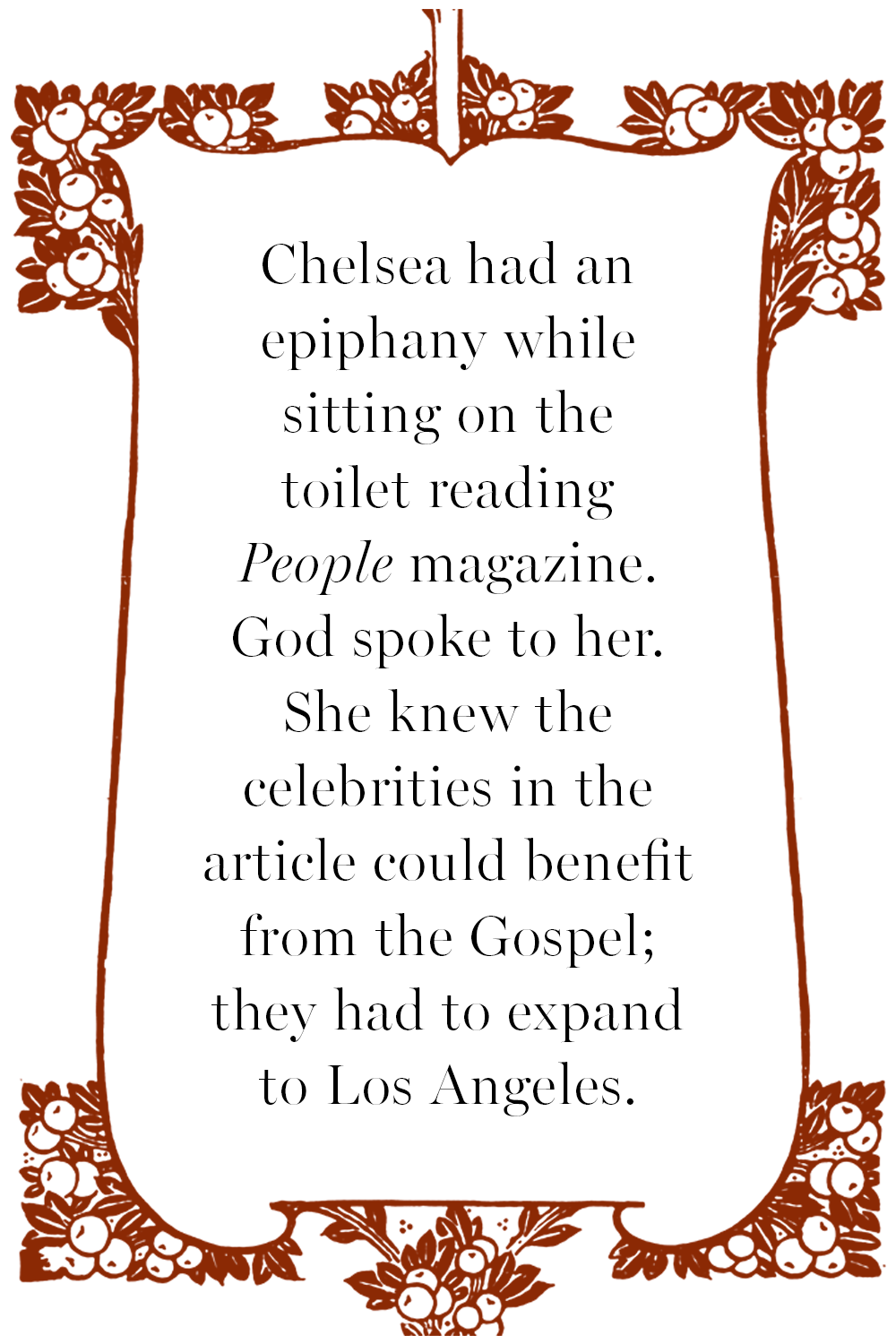
Chelsea’s and Judah’s moms met each other at a church they belonged to in Portland, Oregon. Chelsea and Judah passed notes in junior high, until Judah’s family moved to Seattle to found the City Church in 1992, when he was 13. Led by Judah’s father, Wendell Smith, the church started with just 21 people and eventually grew to about 7,000 members.
Chelsea studied human development at Warner Pacific University, a Christian liberal-arts school, and planned to become a high school guidance counselor. Then, during her senior year, Judah showed up as a guest speaker at the ministry where she was working as a youth pastor. Chelsea and Judah married in 1999, taking over as co-lead pastors of Judah’s father’s church in 2009. Four years later, Chelsea says, she had an epiphany while sitting on the toilet reading People magazine. God spoke to her, she explains; it wasn’t a human voice but rather a gush of intense emotion and the sensation of receiving “a paragraph of thoughts in seconds,” she adds. She’s not much of a crier, she says, but in that moment, tears began to stream down her cheeks. Chelsea says she knew the celebrities in the article she was browsing could benefit from the Gospel; they had to expand to Los Angeles. “I felt such a deep sense of compassion,” says Chelsea. “It was a moment of feeling the heartbreak and the pain [celebrities feel] of achieving your dreams and realizing that you’re still empty and the unique type of hopelessness that that is.”
In 2017, the Smiths changed the church’s name as it had been for 25 years, the City Church, to Churchome. The name seemed more apt for a congregation that had outgrown the bounds of a single city. Besides, the term “City Church” was getting buried in Google search results.
Over a lunch of premade salads from Sweetgreen (“Mommy and Daddy are keto,” Grace says), Chelsea shows me the She group on the Churchome app. She scrolls to a message written by a woman who describes forgiving herself for having had an abortion when she was 18, posted on the day the Reproductive Health Act was passed in New York last January. “Thank you for sharing your story and offering hope and comfort in Jesus,” Chelsea wrote in response. “He loves us all so very, very much regardless of what we have done. When He looks at you He doesn’t even see the act of abortion.”
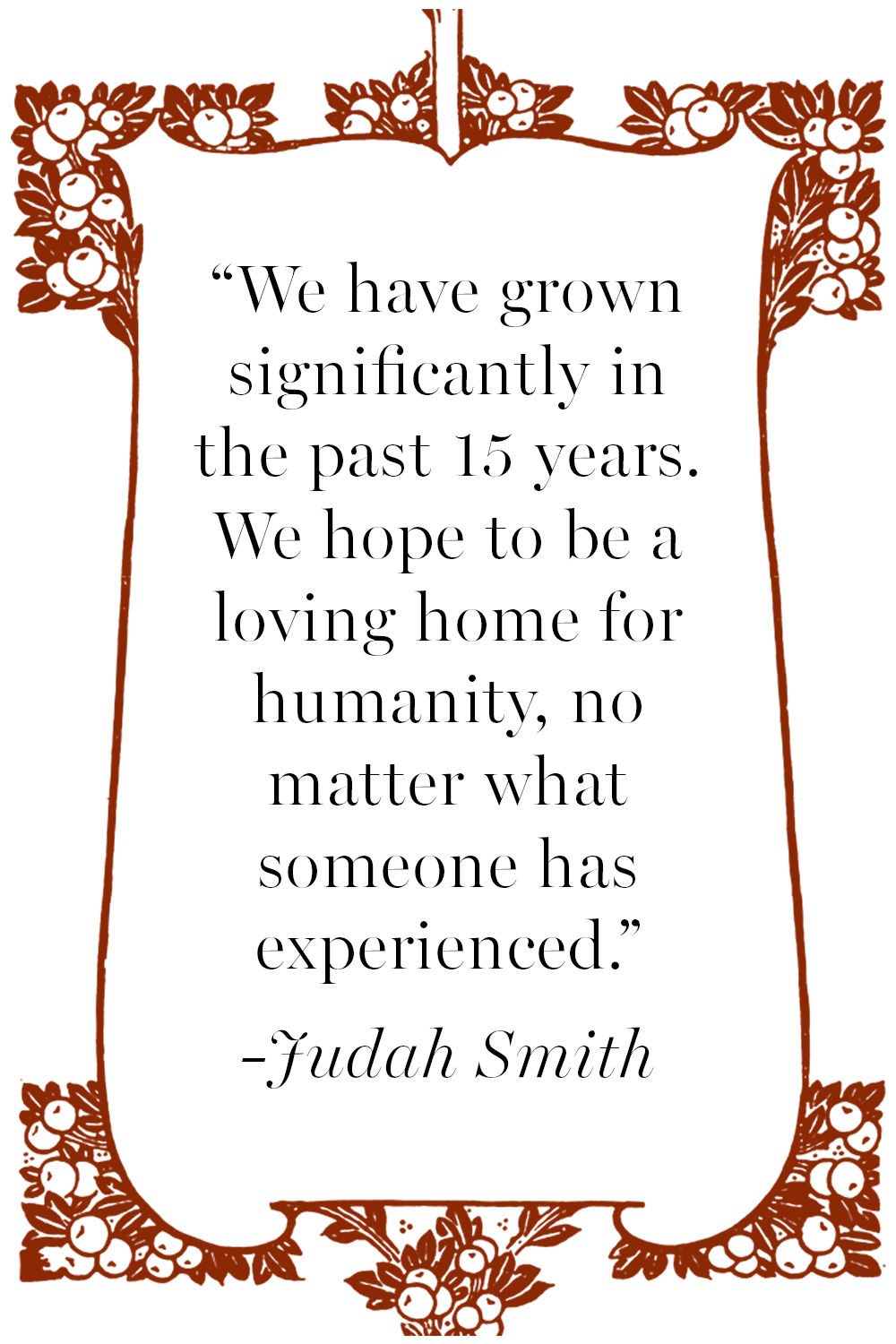
Regarding his 2005 comments on abortion, Judah says (through his publicist), “We have grown significantly in the past 15 years. I wouldn’t agree with my approach when I was a young pastor on many issues and understand that no life decision is easy. We hope to be a loving home for humanity, no matter what someone has experienced.” When I ask Chelsea what she would say to a member of her congregation considering an abortion, she is quick to clarify that, unlike a priest, a pastor—at least at Churchome—isn’t meant to provide counsel. “We know what we’re good at, which is the Bible and Jesus and telling His story. And we know what we’re not good at. There are amazing trained professional psychologists and counselors [for that].” That’s why, on the Churchome Global app, the Smiths titled a section of videos “Question and Response” rather than “Question and Answer.”
Throughout the two days we spend together, Chelsea has few answers for me. So I call her up a few weeks later to ask more questions: What is Churchome’s position on LGBTQ members, for example? “Every individual is entitled to their own persuasion, and it’s not our job to persuade. It’s just our job to proclaim. They feel just as loved and welcome and a part of our community,” Chelsea says. Have Judah’s views on homosexuality changed since 2005? “We are a church who love and welcome people regardless of their beliefs or background,” he says. Would Churchome be open to having a gay pastor? After a long pause, Chelsea says, “We are very much in the category of ‘We love everybody. God is for everybody. And God’s heart is for people.’ So our hearts are for people, and that is where we land, absolutely.”
A response, certainly, but not an answer.
An earlier version of this story misstated the date Church Clarity's survey of America’s 100 largest churches was published. It was published in 2018, not 2008.
This story appears in the Holiday 2019 issue of Marie Claire.
Credit: Loops illustrated by Susanna Hayward